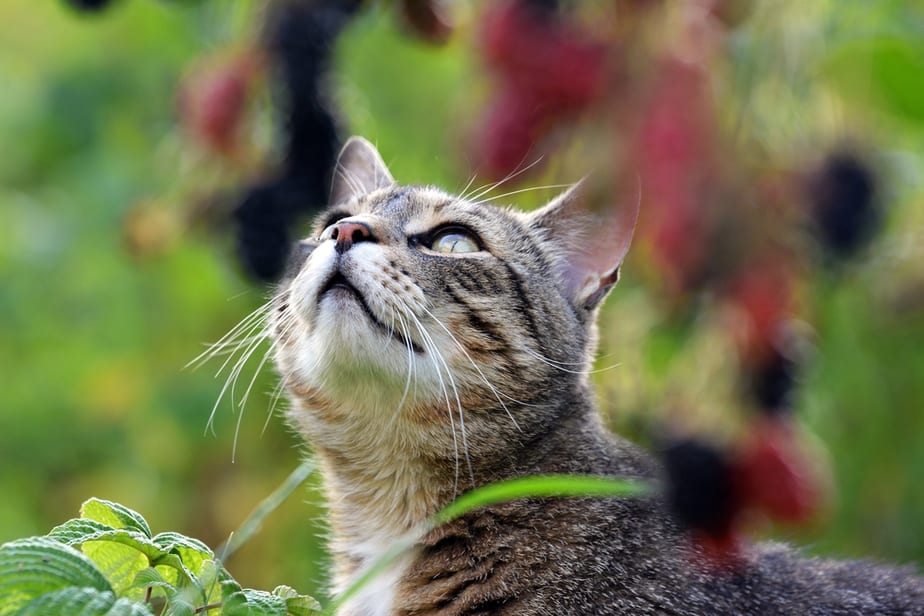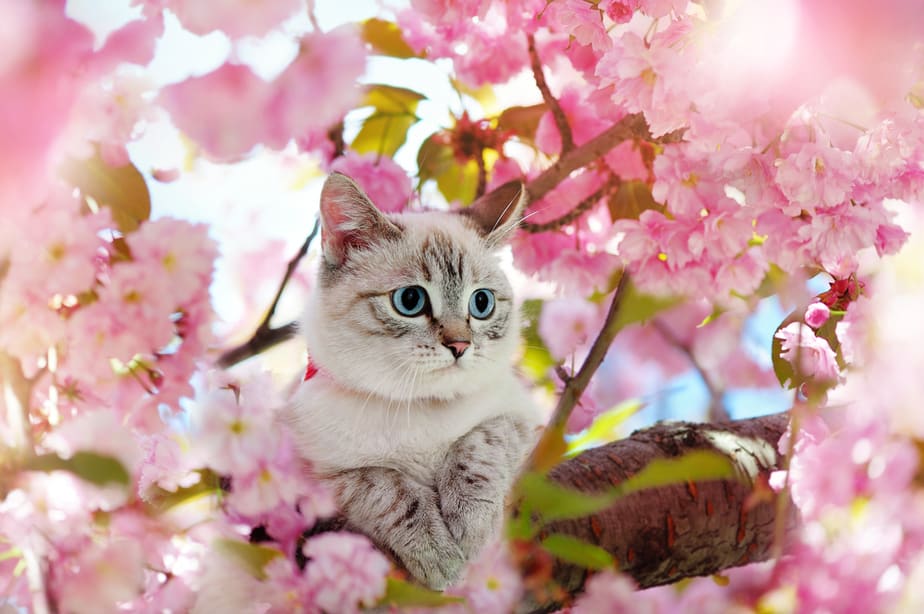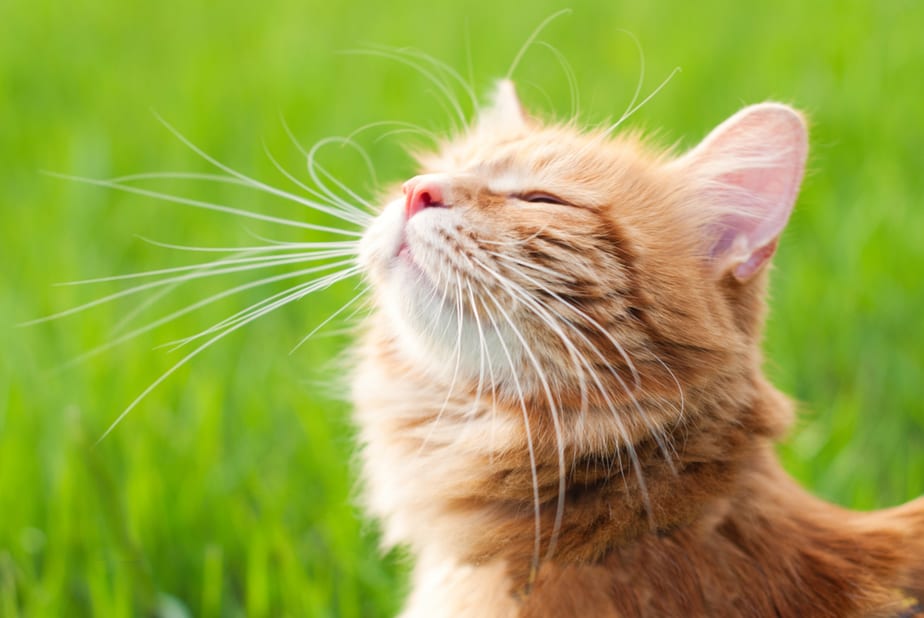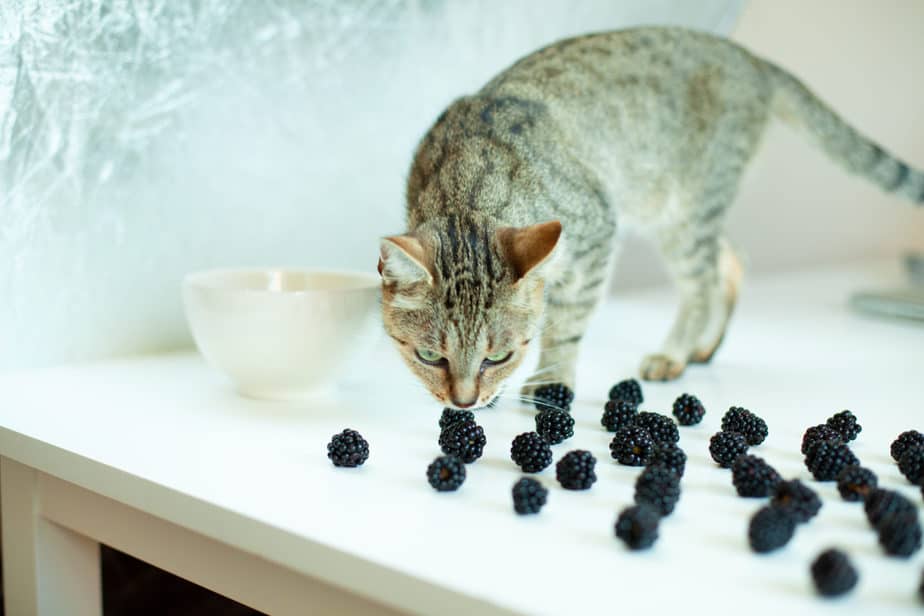You’d think growing up, your cat would slow down and stop wreaking havoc all over the place. Now that you’re proven wrong, what if she comes across some human foods? If she knocked down a bowl of blackberries, she’d be intrigued by the berry fruits. Can cats eat blackberries among other fruits?
This would be an unusual choice of food for felines out in the wild because they’re carnivores. This means that meat is their primary source of diet, so fruits are at the bottom of their menu. However, your pet has never outgrown that kitten stage where she’s intrigued by every little thing she encounters.
This is where all the worry and questions start to kick in. It may seem you’re overthinking sometimes, but really, life with these lap monsters makes you dizzy with all the possible case scenarios.
When it comes to this tiny fruit, you don’t have to panic because they’re not toxic to your furbaby, so cats can eat blackberries safely.
Are blackberries okay for cats to eat?
Here is some good news: Yes, cats can eat blackberries without you having to tear out your hair.
We know being a cat parent is sometimes a difficult task and you try your best to keep them safe and satisfied. However, don’t worry about blackberries anymore, as they don’t have any part that’s toxic to felines.
Moreover, they can provide her with certain health benefits, just like humans. Be free to offer your furkid some blackberries to munch on, from time to time.
Still, don’t forget your pet is an obligate carnivore, which means you shouldn’t try to replace meat with any fruits. They can be a great addition to her diet, but nothing more.
Health benefits of blackberries

As we all know, fruit is one of the most healthy foods out there. They provide us with crucial vitamins, minerals, and other nutrients. It’s simple logic really – man evolved from monkeys and their favorite food is bananas!
When it comes to cats though, they just shrunk a bit in size, that’s all. But, their feisty nature remains, if not even more sly than before. Still, even though blackberries are not meat, it doesn’t mean they can’t be beneficial to your carnivorous floof.
1. A supply of antioxidants
These tiny berries are packed with antioxidants that help fight free radicals in the body. This means they have anti-inflammatory and antibacterial properties that could help prevent certain diseases from developing, such as cancer.
These can be highly beneficial to pets with chronic diseases, such as arthritis. Older cats who have joint inflammation could use some of blackberries’ anti-inflammatory properties. And apart from reducing inflammation, antioxidants have a role in protecting the immune system.
2. Loaded with vitamins and minerals
It’s not just that cats can eat blackberries, but they really should! That is, on occasion. These small fruits are good for your furkid’s eyesight due to their vitamin A content. It helps improve vision and prevent impairment.
This vitamin is especially important for nocturnal animals like felines. How else could they see what to knock over in the middle of the night?
When it comes to cats, we’ve always known they are superior to us. They synthesize their own vitamin C in their liver. Fascinating, right? So, while we mortals rely on eating different foods to get the needed amounts, they just lay around without worries.
However, blackberries are a good source of this vitamin, and the extra amounts can be useful. Unlike lemon, which is also rich in vitamin C, blackberries are totally safe for ingestion.

Vitamin C works hand-in-hand with iron and helps in the production of collagen. This means it’s highly beneficial to your pet’s teeth (aka razors!) as well as bones.
Moreover, vitamins E and K found in these little berries are important for the overall immune system and muscle health. They’re also good for your cat’s skin and blood coagulation.
Among all of these health supplements, two important minerals are notable in blackberries. Calcium and manganese are some of the most important minerals for bone strength. They also help with connective tissue formation and blood sugar regulation.
3. What about the fat and protein content in blackberries?
If you’re trying to get your chonky to lose weight, or her coat’s been feeling a bit heavy lately (and it’s not winter), give blackberries a go. These fruits are low in fat, which is good news.
Felines require healthy fats in their diet to provide them with much-needed energy. How else could they be running up and down the house at 4 am?
Blackberries have small amounts of healthy fats that are good for cats. However, the amount isn’t sufficient to meet a feline’s daily activities and fuel her bodily systems.
The good thing is that blackberries contain protein. Protein is an essential nutrient in a cat’s diet and without it, she’d become sick quickly. The bad thing is that this protein is plant-based. This means that it’s still valuable to cats, but not as much as animal-derived protein.
The reason the protein found in blackberries could go to waste is that cats have a hard time digesting plant material. So, while a couple of berries could be a great snack for your pet, they can’t replace her main nutrition. Make sure she still sticks to meat.
Sugar – a red light

“Can cats eat blackberries due to the natural sugars they contain?”
Even with all the health benefits blackberries offer, you have to watch out for the sugar content. Just like all fruits, these berries are also high in carbohydrates.
Carbs are nutrients that aren’t welcome in the cat world. They come from plants and, as we’ve established, cats and plants don’t mix well. Felines are carnivores which means they thrive on an animal-based diet.
Sure, a few blackberries here and there won’t hurt, but the nutrients found in these fruits won’t be digested properly. This is why carbs are unnecessary in a feline’s diet, as her body can’t process them. And what happens when something piles up that you can’t get rid of it?
You get the hint, but just to be clear – excess carbs turn into fat. Though our pets are models no matters what, a few extra pounds could be potentially dangerous. The added weight could cause pressure on her joints, which is especially detrimental for older cats.
Cats are also more prone to developing chronic diseases, such as arthritis and diabetes. Besides, if your cat becomes obese, she could have a hard time sliding through the cat door!
Can cats eat blackberries because of fiber?
Fiber has its good and bad sides. To be more precise, normal amounts of fiber can benefit your fluff, but excess can have an adverse effect.
Felines need certain amounts of fiber to help with their digestion. If she’s having a hard time doing her litter-box business, a bit of fiber may help as it prevents diarrhea and helps move the food through the digestive tract.
However, don’t get ahead of yourself and feed your cat food with high-fiber content. Too much can end up causing problems.
While a little can help loosen stools, too much fiber could cause constipation. Make sure to provide your pet with quality foods that have a balanced nutritional profile.

How to feed blackberries to cats
We established that fruits aren’t a feline’s main choice of food. Because your pet’s a carnivore, she may not gain all the benefits from these healthy snacks. Therefore, even if cats can eat blackberries safely, don’t overdo it.
A few berries here and there could be a beneficial addition to her meals, but their nutritional value is low for a meat-eater like your cat. So, keep this treat is for the odd occasion.
A good way to feed these fruity snacks to your furkid is to freeze them. This way, they are more interesting to her, and it’s a good idea for the fussy eater. It comes in handy on hot, summer days when she needs to stay hydrated.
We know our four-legged friends are not fond of water, so they tend to avoid it as much as possible. They’re not so keen on drinking it, either. So, freezing up some fruits is a good way to keep her hydrated and entertained.
To conclude
Summed up, cats can eat blackberries, but as an occasional snack. They don’t have a high nutritional value for carnivores like cats. Therefore, it’s best to stick with her main diet and introduce fruits slowly. These berries, if fed properly, can have certain health benefits to your pet.
They’re high in vitamins, minerals, as well as fiber. These are all crucial to your furbaby’s health and can provide her body with an extra health boost. However, they’re low in protein, an essential nutrient that cats need to consume on a daily basis.
That way, your kitto stays healthy and active. A downside to cats eating blackberries is that, just like any fruit, they’re high in sugar.
Carbs are unnecessary in a feline’s diet, which could mean extra pounds. If your pet regularly consumes carbs, this may cause problems in the future.
So, stick with meat as a regular diet and fruits as an occasional snack. Make sure you provide your furbaby with a healthy and balanced diet to keep her safe and sound.
See more: Can Cats Eat Cherries? Safe Or Hazardous?

